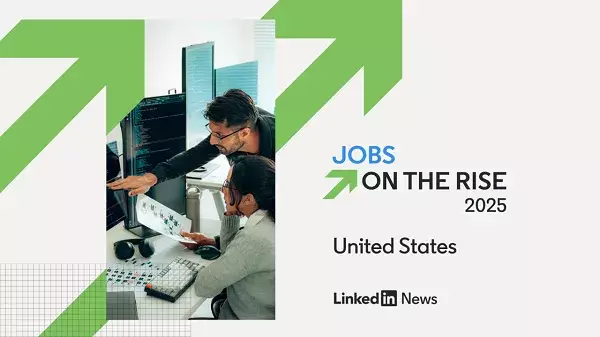As we approach 2025, many individuals are contemplating significant career shifts. The evolving job landscape, as highlighted by LinkedIn’s “Jobs on the Rise” report, sheds light on the roles that are increasingly in demand and the relevant skills that employers prioritize. The report serves as a beacon for those seeking to pivot their careers in line with market needs, particularly in the wake of technological advancements.
One of the most striking revelations in LinkedIn’s findings is the profound impact of artificial intelligence on career opportunities. Positions such as “AI Engineer” and “AI Consultant” are leading the surge in job listings. This trend indicates not only the growing reliance on AI tools by businesses but also the urgency for qualified professionals who can navigate this rapidly evolving field. Companies are not merely looking for individuals who can utilize AI; they seek those who can strategically implement these technologies to enhance operations and drive innovation.
However, it is crucial to acknowledge that while AI offers transformative potential, it cannot wholly replace the human touch. Understanding AI’s capabilities and limitations is essential for professionals in this domain. It is vital for future job seekers to recognize where human intuition and creativity still reign supreme, providing a competitive advantage that AI cannot replicate.
Interestingly, while technology-driven careers are on the rise, there is also a notable increase in roles that AI cannot fulfill. Professions like physical therapy and travel advisory remain irreplaceable, underscoring the value of human engagement and personalized services in certain sectors. This juxtaposition suggests that aspiring professionals should consider a hybrid approach to their career strategies, leveraging both technological and interpersonal skills.
Furthermore, roles demanding emotional intelligence, intricate problem-solving, and creativity are becoming increasingly valuable as automation progresses. While AI can assist with various tasks within these professions, the successful execution of these roles relies significantly on human involvement. This trend hints at a broader shift where emotional and social intelligence are at the forefront of employer expectations.
LinkedIn’s report isn’t just a checklist for job seekers; it serves as a comprehensive analysis of the current job market and emerging trends. For young professionals, the report highlights burgeoning roles that cater to their unique skill sets and preferences. Additionally, the insights provided empower job seekers to tailor their resumes and learning paths according to market demands, aligning their career aspirations with future opportunities.
As we edge closer to 2025, it is imperative for those considering career shifts to stay informed about the changing landscape of job roles and required skills. Embracing the duality of technology and human-centric skills will be key in navigating this complex ecosystem, ensuring they remain competitive and relevant in an ever-evolving marketplace.

